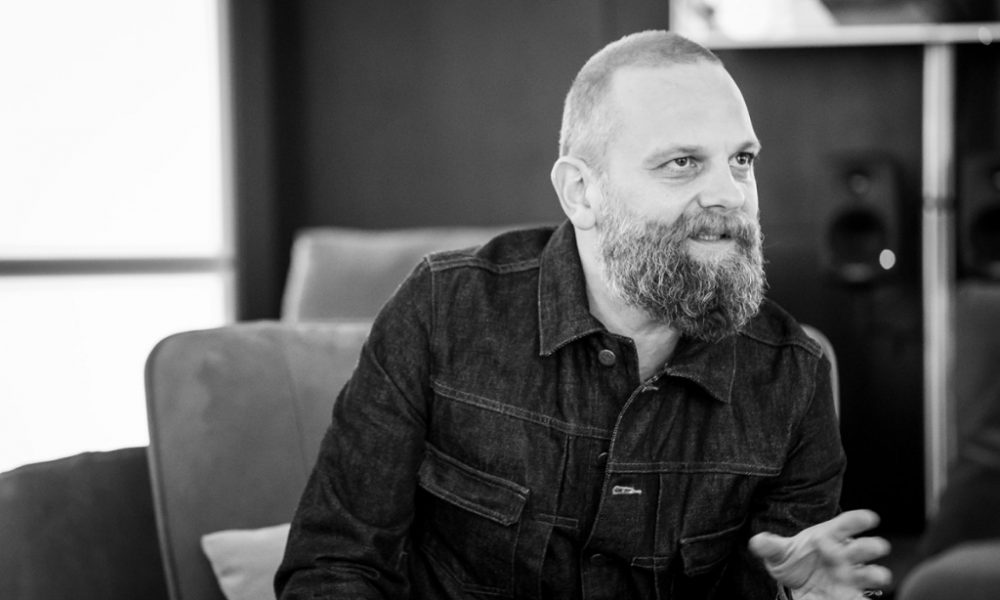Styx: An interview with director Wolfgang Fischer

Director Wolfgang Fischer’s masterful Styx opens the Panorama section of the 2018 Berlin International Film Festival. It’s an engrossing morality tale, with portions that can be unsettlingly suspenseful. Rike (Susanne Wolff) is embarking on a solo yachting voyage from Gibraltar to Ascension Island when she is abruptly pulled into the ongoing refugee crisis after spotting a dangerously derelict vessel filled with people who desperately need assistance. After an underwhelming and almost blasé response from the authorities, Rike faces her sense of social responsibility. She is barely equipped to help, but she might be the only one who can. We sat down with Wolfgang at the 2018 Berlinale.
You’ve just come from a public screening of the film. Were you pleased with the audience’s response?
They were very touched, very fond of the movie… they seemed to like it a lot. The reactions were really brilliant.
Were you expecting that the film would be met with such an emotional reaction?
Not at all. For me, there’s always some tension when you’re watching this movie. It was a like physical harm you get when you watch the movie, and so it’s almost a relief when they go out and reflect upon what was going on in the film. It was interesting to observe that in the audience.
The tension in the latter part of the film can be intense. Were you ever tempted to inject a bit of lightness, perhaps to just grant some temporary relief?
No, never. We wanted it down to the base. It’s a film with no subplots. We wanted there to be no escape from this dilemma. It raises the question of what to do, what is right, what is wrong in this situation, and this dilemma needs to keep up this tension, which was our aim.
The script went through some evolution before the version that was filmed. You first wanted to show a couple sailing around the world. Why change it to a solo yachtswoman?
That was the decision the co-writer and I came up with. It was better to show a single person out on the ocean, a woman all on her own, in this archaic world, not a couple where they can reflect, they can talk to each other, they can help each other. The idea was to have one person going from north to south, with one person going from south to north and then they meet in the middle of the ocean. And that’s the contrast that can be seen. There’s the sailor, she’s skilled, she has all the security systems with her, and on the other side you have these people who have nothing on board, no contact, nothing, with nobody to help them. And this clash was the base of the movie.
In the film there’s a scene where a passing large ship refuses to help. Is this the reality?
Unfortunately yes. We had contact with many NGOs and they told us sometimes the ships have plotter systems, and the guideline from maritime authorities. They then tell the tanker to go on this route, because there is a dangerous area – avoid this area, because there’s something not safe, a shipwreck, unsafe, do not intervene.
Like it’s almost company policy to let someone die…
And that is what is going on right now, all the time. We could do this, we could help, and yet it’s only the NGOs in this area. There is no government help, none of these vessels are there, and that’s reality.
Was it ever overwhelming to tell a story that is so distressing, especially since nothing has changed in the years that you developed the film?
It’s really shocking. It’s still the same. We started with this seven years ago, and now nothing has changed. It’s around 20,000 people who have drowned. There is still no solution, no concept, nobody does anything about this.
Gedion Oduor Wekesa [the child actor who appears in the film] was quite a find. How was he cast?
The casting was with about 60 boys, and it was all from a school in Nairobi. There is an organisation called One Fine Day, and they go in the schools, the slum kids from Nairobi can explore their creativity. They can dance, there are drama workshops, and so we did the casting. And it was amazing to work with these people there, and also to get this kind of feeling from these people, the conditions they’re living in, and to bring that to the movie. For me it was so hard, I couldn’t imagine just going to Berlin, Paris, London, and to cast the boy from our world as we know it. I needed to go there [Nairobi], and it was also the aim to show the kids in Nairobi that they can reach something with creativity. You can do something. You don’t have to hang out on the streets. To do something with them, that was the aim.
And Gedeon now wants to be a movie producer?
He’s on track now!
Was Susanne Wolff always your first choice for Rike? She is alone for much of the movie.
We did castings all over Europe, and there were many, many people we saw in those castings, and in the end it was Susanne. She has this kind of physical approach and she’s sensitive on the other side… a really strong character. And she knows how to sail! We really wanted to show the reality, how to do it, how does she steer the ship, and we wanted to see how she’s physically dealing with the boat, and also with nature, this archaic world she finds herself in, and she did it for real in the movie. There was no stunt double, it was her at the steering wheel and it’s crazy to watch.
How did the famous apes of Gibraltar come to be featured in the movie?
It was insane being in Gibraltar. It’s a little bit of a weird area, strange because if the apes disappear, Gibraltar goes back to Spain. And this ape thing is a big theme in Gibraltar – and I like it so much that you see apes not in their natural surroundings. Suddenly, they’re in the city, downtown, and then you see that something feels a little bit out of balance, there’s something wrong with the picture. And I liked that idea very much.
In the sequences where Rike desperately contacts the coastguard, all the voices on the radio have different accents. Was this a deliberate choice?
Yes, that’s right. So that it wasn’t Spain, Italy, you don’t blame one state. And that’s the reason why we did these different voices.
Did you really sail back and forth between Malta and Sicily to shoot the open water scenes?
Yes, so the Atlantic Ocean was the base. And it was so difficult to shoot on open water. Everybody said not to do it, it’s a horror. And it is a horror because you can’t control the ocean. It’s impossible. You can’t do your normal setup like when you shoot another movie and everything is prepared – you just can’t do it. To be on an 11-metre yacht, with eight people and they all have to hide (during filming) so that we could show a single-handed sailor, and it was a crazy adventure. Half of the team was seasick, and it was really tough, especially when you travel for these long distances. You can’t leave the boat, so if you’re seasick, you have to stay on the boat all the time!
Oliver Johnston
Styx does not have a UK release date yet. Read our review here.
Read more reviews and interviews from our Berlin Film Festival 2018 coverage here.
For further information about the event visit the Berlin Film Festival 2018.



























Facebook
Twitter
Instagram
YouTube
RSS